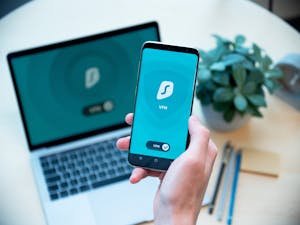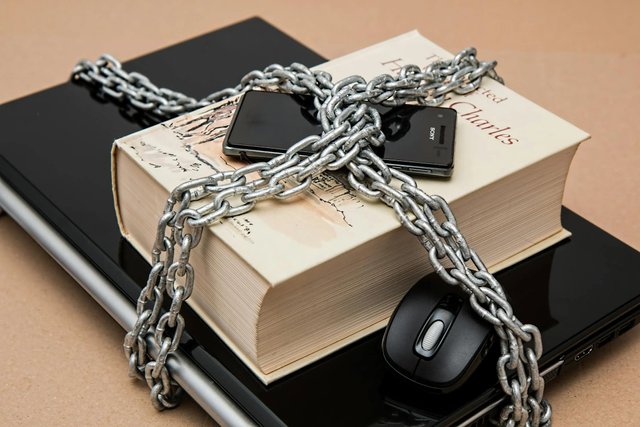I had the habit of always leaving my bedroom door open. My little cousin took advantage of this.
She would crawl in when I step out for work, ransack my room until all the drawers are empty.
One day, I returned to find toothpaste smeared all over my personal computer.
I could feel my chest leave my rib cage.
My hands went jelly for a while.
Even my vocal cord shifted from its original position. Hot tearssss raced down my face.
Right then, nothing in the world made sense any longer.
Alas! You would agree that the deed was done.
And so was I.
I was done
keeping
my private space
open!
You might have encountered a similar experience where someone had unauthorised access to your personal space or private information.
It is even more common on the internet. This is because majority of people are less conscious about the information they share which makes them susceptible to attacks.

But here is the secret:
You can control what others see and know by simply putting a lock 🔐 on that door. That's the power of confidentiality!
1. Start by identifying what constitutes sensitive data: Whether it is in your workplace, home or social media, there are certain pieces of information that should be restricted to only certain groups of people. These include personal identifiable information (PII), financial details, photo of kids, private conversations, travel plans and so on.
2. Identify who is authorised to access each piece of information: If your bank is asking for your password, or a shopkeeper is requesting for your credit card's details, you have every reason to be wary. Are there truly authorised to have this information?
3. Lock up: Now you know what information to share and what to conceal, it is time to lock up. People do this in various ways. Either by limiting what they share or controlling who has access to each information and data. Something as simple as using strong, unique passwords or turning up multi-factor authentication on all your social media accounts would save you from story that can restrict your airflow.
Did I learn something from my cousin's experience? Yes! Have you learnt something from it as well?
Do well to share your thoughts in the comment section. I would like to know how you keep things confidential on social media and how this can help foster trust as well.
| End note |
|---|
| My deepest appreciation goes to @disconnect for keeping us updated. I am super excited to participate in @hive-107855’s keyword contest. I would encourage @yhudy, @lamia30 and @owulama to share their thoughts on this interesting topic. |
|---|

@tipu curate
;) Holisss...
--
This is a manual curation from the @tipU Curation Project.
Downvoting a post can decrease pending rewards and make it less visible. Common reasons:
Submit
Upvoted 👌 (Mana: 7/8) Get profit votes with @tipU :)
Downvoting a post can decrease pending rewards and make it less visible. Common reasons:
Submit